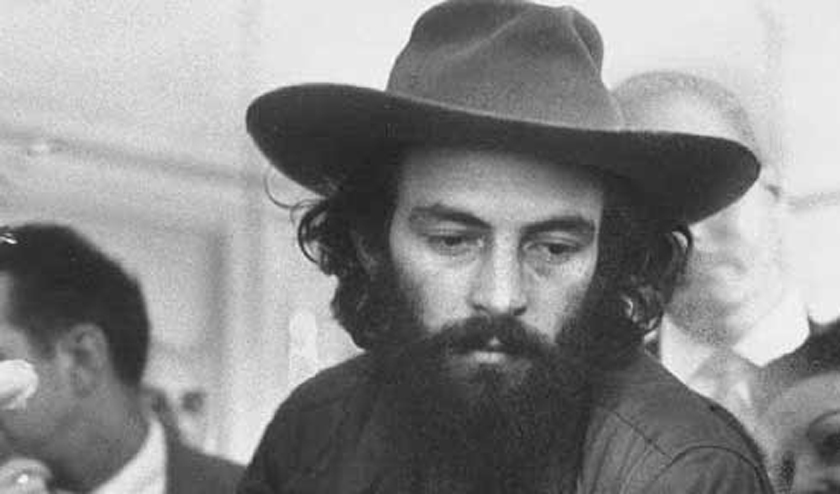
No one can ignore it: even on the anniversary of his sorrowful physical disappearance—October 28, 1959—Camilo Cienfuegos invariably shines on the Cuban people with the strength of his boundless courage and joy.
As October 2021 comes to an end, Camilo, who was only 27 years old, returns as more than a hero: a humble man, every inch a Cuba, a steadfast patriot always willing to give his life for justice, at a time when thousands of young compatriots embrace his legacy as they face both COVID-19—now receding—and mercenary conspiracies paid by the empire, among other ongoing battles.
Today, 62 years after his death, together with valuable combatants such as the experienced pilot Luciano Fariñas and his young escort, Felix Rodriguez, who also disappeared in the plane crash, Commander Camilo Cienfuegos is still one of the most indispensable and best children of the Homeland.
He went down in history as the Hero of Yaguajay—a decisive battle in the final victory of the Rebel Army—and the Lord of the Vanguard, for his brilliant performance as a fighter and leader of a force that he joined from the very first day.
Long recognized as Commanders of the Army that fought against the tyrant from the Sierra Maestra Mountains, Camilo Cienfuegos and Ernesto Che Guevara deployed throughout Cuba the rebel offensive that ended with defeat of the criminal dictator Fulgencio Batista.
It was a daring campaign, hard and full of dangers and marked by heroic battles which more and more brave Cubans joined along the way and became a tribute to the East-to-West Invasion spearheaded by Generals Máximo Gómez Báez and Antonio Maceo y Grajales.
Today's Cubans speak with pleasure and pride about the pure fellow citizen whose outgoingness and good-natured, dynamic character reflects their idiosyncrasy and who was always the first to oppose injustice and human meanness from an early age.
Camilo also embodied the ideal of the best of youth: bravery, courage, honesty, human solidarity, joie de vivre, patriotism, humanism and fidelity, among many other virtues... If he had flaws, as any other human being, no one remembers them.
A few days after the historic Battle of Yaguajay, the whole of Cuba met him after he came to Havana, to prepare, together with Che, the arrival in the city of the Caravan of Freedom, headed by Commander in Chief Fidel Castro ever since it left from Santiago de Cuba.
It is worth mentioning that his moral virtues as a child and a young man are the result of the education he received from his parents, two humble Spanish émigrés.
Camilo was born in Havana’s Lawton neighborhood on February 6, 1932. As a restless teenager with a keen eye for social injustice, he took part in popular protests against the rising cost of living and joined in 1954 the struggle against the Batista dictatorship. After being arrested by the repressive authorities, he was forced to leave the country.
At 21, the economic hardships forced him to stop his studies and travel to the United States, from where he was deported. Upon his return to Cuba, he became directly involved in the student revolutionary movement. After being imprisoned and suffering torture while in there, he went into exile again.
During a brief stay in New York, he learns of Fidel Castro's plans in Mexico to organize a liberating expedition to Cuba. In 1956, he contacted the 26th of July Movement led by Fidel and joined the crew of the Granma yacht, which would finally leave the port of Tuxpan with 82 future combatants.
The turbulent landing at Las Coloradas beach on December 2nd and the baptism of fire at Alegría de Pío confirmed Camilo’s decision to be faithful to the cause until the end and led him to fulfill multiple armed missions under the command of Fidel, Almeida and Che. Finally, on April 16,
1958, he earned the rank of Commander of the Rebel Army—by then a force to be reckoned with—and his capacity for organization, offensive and strategy became well-known and revealed his brilliance as a guerrilla leader.
The year of the triumph, 1959, was one of intense work for Camilo and other young leaders of the nascent revolution, engaged since day one in the fight for equality, social justice and national sovereignty.
The consternation that his physical departure caused among the Cubans is only overcome by the conviction that his example lives on in their midst since, as Jose Martí said, death is not real when a life’s work has been duly accomplished.
A sea of children, students and people in general go on a pilgrimage every October 28 to the coasts, rivers and water reservoirs of the country to lay flowers on the immense natural sepulcher that welcomed the heroes that day.
Only the pandemic has reduced the largeness of such demonstrations in the last two years, but the fervor and love remain unchanged within today's generations. And with more strength, convictions and patriotism, we will go this year to the meeting with Camilo, as befits our inescapable commitment.










Nos reservamos el derecho de no publicar los comentario que incumplan con las normas de este sitio